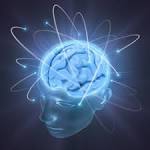 Tehran, June 21, IRNA - Researchers at the Neurology Laboratory affiliated with the Iranian National Center for Addiction Studies have evaluated the effect of transcranial direct current stimulation (TDCS) on methamphetamine (meth) craving.
Tehran, June 21, IRNA - Researchers at the Neurology Laboratory affiliated with the Iranian National Center for Addiction Studies have evaluated the effect of transcranial direct current stimulation (TDCS) on methamphetamine (meth) craving.�Transcranial direct current stimulation modulates craving ratings in drug addicts by modification of cortical excitability in dorsolateral prefrontal cortex (DLPFC), the English-language paper ?Iran Daily? wrote in its Saturday edition.
The researchers aimed to test whether tDCS of DLPFC could also alter craving in meth users, it added.
They applied anodal tDCS and sham tDCS over right DLPFC of thirty two meth users.
Results of the research showed a state dependent effect of tDCS: while active prefrontal tDCS acutely reduced craving at rest in the abstinent meth users, it increased craving during meth-related cue exposure.
These findings reflect the important role of the prefrontal cortex in both cue saliency evaluation and urge to meth consumption.
There are three different types of stimulation: anodal, cathodal, and sham. The anodal stimulation is positive (V+) stimulation that increases the neuronal excitability of the area being stimulated. Cathodal (V-) stimulation decreases the neuronal excitability of the area being stimulated. Cathodal stimulation can treat psychological disorders that are caused by the hyper-activity of an area of the brain.
Sham stimulation is used as a control in experiments. Sham stimulation emits a brief current but then remains off for the remainder of the stimulation time. With sham stimulation, the person receiving the tDCS does not know that they are not receiving prolonged stimulation.
By comparing the results in subjects exposed to sham stimulation with the results of subjects exposed to anodal or cathodal stimulation, researchers can see how much of an effect is caused by the current stimulation, rather than by the placebo effect.
By IRNA
The Iran Project is not responsible for the content of quoted articles.











